Apple has faced profound challenges in the past from powerfully entrenched adversaries that once looked like they might derail the company's advancement, including Microsoft, Nokia, Google, Motorola, and Samsung. But today, with no real competitors standing in its way, will Apple's premium-priced trajectory get knocked out of alignment by a recession in China and global aftershocks? Here's a look at Apple's future informed by its recent past.
The modern history of Apple has weathered two previous recessions: one in the early 2000s following the Dotcom Bust, and then the Great Recession of the late 2000s that hit after the 2007 Financial Crisis. Note that both of these happened to coincide with the emergence of major new products that fundamentally changed Apple's core: first iPod and then iPhone.
Apple's 2001 Dotcom survival
In 2001, Apple was just beginning to recover from its 1990s near-death experience thanks to a series of decisive moves by Steve Jobs — including the slashing of unproductive research and the simplification of the company's product strategy. Yet as Apple rebuilt itself with solid new hits like the consumer iMac and workhorse PowerMac G4, it also launched its first notable mistake in the expensive, high-end, form-over-function PowerMac G4 Cube in 2000.
The G4 Cube was beautiful and featured some impressive concepts, but was beset by poor timing. It had been premium-priced to cater to the lavish-spending Dotcom market that began to implode just as the new machine became available. It only lasted one year as a commercial product. It now sits in various museums including New York's Museum of Modern Art, and in a few AppleInsider staffers' collections
It's tempting to suggest that Apple's current lineup of high-end iPhones, MacBook Pros and other premium hardware sit in a similarly precarious position as the economy begins to look uncertain globally— particularly in China, where big-ticket spending has scaled back dramatically. There's an incessant media narrative continuously backed by populist head nodding that claims Apple's prices are just so high now that nobody can afford to buy them, along the lines of the quote attributed to Yogi Berra that "nobody goes there anymore. It's too crowded."
Pundits, columnists, and even many analysts keep talking about Apple's premium pricing as a problem, and seem to think they have discovered pure gold in arriving at the conclusion that rivals are offering competitive hardware at— get this— cheaper prices than Apple. The reality is that neither of those things is new for Apple at all.
In reality, the G4 Cube wasn't abruptly discontinued because the public suddenly realized that HP, Dell, and various generic PC makers were selling computers for less. It was largely that the new Cube was trying too hard to be museum-worthy and simply wasn't very good at being a powerful Mac, or as a plug and play consumer hit like iMac, and wasn't really doing anything usefully new.
The pricing of the fancy G4 Cube certainly didn't help its overall popularity, but a larger problem was its rather impractical desktop form factor just as mobility was growing increasingly important.
Apple continued to cope with the Dotcom Bust and economic recession while selling other premium-priced PowerMacs. It also introduced the fancy new Titanium PowerBook G4, a machine that was just as much of a premium-priced showboat as the G4 Cube at a time when tons of cheap PC notebooks were available elsewhere.
And most notably, in 2001 as recession afflicted Apple's primary markets in the U.S., Japan, and Europe, the company introduced iPod, a music player that was far, far more expensive than competing CD, MiniDisc, Flash memory or other hard drive MP3 devices. Yet iPod's premium price did not hold Apple back from clawing its way upward during a serious economic downturn.
Ultimately, the iPod ended up helping the company to completely reinvent itself as a device maker, as well as a global retailer— because iPods drove the creation and expansion of its new stores.
Jobs' recovering Apple of 2001 could demand premium pricing on its technology products that did rather non-novel things and yet dramatically grew during a recession despite limited corporate resources and a near 100 percent dependence on Mac hardware sales. At the same time, Microsoft exercised near total control over the global PC industry. So, why are pundits today patting themselves on the back for pointing out that the Apple of 2019 is charging more for its iOS mobile devices than Android cloners in China? Are they really that impenetrably ignorant?
Today, Apple has vast ecosystems that are far more important than the MP3-playing iPod and Mac software titles available in 2001. iOS is critically important to the enterprise globally in ways Android will never be. Consumer interest in data security and privacy has never been higher, and Apple has never had a stronger case to make compared to the data grabbing surveillance advertising of Android as a platform, and particularly as a government surveillance platform built by various licensees who aren't going to resist when the state demands backdoor access.
Apple has never before had such strongly interlocking ecosystems like HealthKit and Apple Watch, HomeKit and HomePod, iTunes and Apple TV, Apple Music and CarPlay, Continuity and Macs, and this year: AppKit iOS software that will become portable to macOS. There are tremendous reasons why consumers and businesses will pay a premium for Apple's products in 2019 regardless of whether the overall economy is growing or not, far greater than there was in 2001.
Apple's 2007 Great Recession survival
Less than a decade later, the U.S. was hit by another recession that grew global by 2009. During the economic expansion between those two recessions, Apple had cranked out a series of iPods and incrementally advanced Macs. But internally, it had been working on the next generation of mobility: a wireless tablet capable of running a touch-driven Safari web browser.
Rather than releasing this new concept to a growing economy, Apple refined its product into a smartphone design that could be subsidized by mobile operators and formed global partnerships with carriers starting with Cingular / AT&T in the U.S. It ultimately launched iPhone just as the financial and subprime mortgage crisis erupted in 2007. The entire world staggered into a global recession in 2009.
During this period, notable Apple analysts kept talking about how the company was going to be hit by "global macroeconomic factors," and many began recommending that Apple needed cheaper products that economically battered individuals and businesses could afford. They were wrong. Apple continued building advanced iPhones at the same or advancing price points, to wild success.
Apple also launched increasingly fancy Macs during the peak of the Great Recession, including the all-new, very expensive 2008 MacBook Air with an advanced unibody aluminum design that was quickly incorporated across its MacBook Pro line as well.
To analysts, Apple was doing all the wrong things. It was nearly unanimous for analysts to insist that Apple desperately needed to join Acer, Asus and other failed PC makers in building cheap netbooks, the low-end portable mini-laptops that were cheapened down into a miserable but broadly affordable experience.
Analysts wouldn't stop talking about about this through most of the Great Recession, and tech industry columnists kept giving them airtime to blow out their hot air about how wrong Apple was to be investing in high-end Macs when the PC market was getting eaten up by huge shipments of netbooks. They were wrong.
Just as that recession began to heal, Apple released a followup to iPhone, taking full advantage of the three years of iOS platform development it had built around its new phone to deliver iPad. Rather than being patterned after a $330 Acer Netbook saddled with a sluggish Intel Atom processor running Linux — or optionally "upgraded" to Windows XP Home — Apple created iPad as a tablet-sized iPhone with the same snappy quick interface and no exposure to the problems of web Java, Flash, or other malware.
The entire world of netbooks collapsed. PC makers scrambled to copy iPad using Android or Windows RT or anything that might deliver a similar experience of simplicity, long battery life, and ease of use. Every one of these companies failed to build a successful tablet business, but market researchers and analysts desperately worked to cover this up by drawing attention to how many tablet devices were being shipped.
Intel lost billions of dollars trying to pay tablet makers to use its chips. Google derailed the development of Android phones for over a year in a failed stab to deliver Android 3.0 Honeycomb tablets. It kept trying to deliver Android tablets of its own for the next decade, attempting PC-like slates with Motorola, then trying the ultra-cheap Nexus 7 with Asus, then just ripping off Apple's iPad mini verbatim with the Nexus 9 clone job with HTC. Google, and Android, failed miserably.
Reading the work of tech writers from the last decade, you'd only get the impression that it was Apple that was failing with its iPads, due to its "losses" in market share to the loss-leader shipments dumped by PC failures, and then the collapse of sales that occurred when Apple transferred the value of larger iOS screens from iPad to new, larger iPhones. Yet today, Apple still has a roughly $20 billion tablet business and everyone else has nothing to speak of in the market between phones and PCs.
 The honking noises of punditry were consistently wrong
The honking noises of punditry were consistently wrongTim Cook's first recession as CEO will likely look a lot like his two as COO
If the global economy enters another extended downturn, it will be Tim Cook's first recession as CEO of Apple. But Cook witnessed both of the recessions described above while working under Steve Jobs in the period between Cook's arrival at Apple in 1998 and Jobs' passing in 2011.
Cook witnessed the dramatic turnaround of Apple first hand under Jobs during this period, as the company dramatically shifted from being beleaguered during a boom to recovering with iPod in one recession, and then in building up an iOS empire through good years and bad using the same strategies of advancing affordable luxury technology at prices that appeared to be premium relative to the rest of the industry.
How Cook manages Apple through whatever economic waves are to come will likely look a lot like Apple's immediate past. And one facet of that parallel will be that analysts and pundits will be critical of its success while recommending the failed strategies that are clearly destroying Apple's remaining rivals.
Apple's growth during the implosion of conventional PCs
Back in 1996, the Beleaguered Apple was indeed seriously troubled. It's useful to point out that analysts and pundits at the time had almost unanimously and uncritically endorsed the company's various plans over the previous five years. Amongst recovery plans were development of a modern operating system, new chip fabrication in partnerships with Acorn and IBM, developing multimedia as a new market for its computers, the mobile Newton PDA platform, OS licensing to third-party hardware makers, and selling Macs via various retail outlets.
However, those initiatives— as implemented— all turned out to be expensive mistakes that failed to make a difference or provide any hope of a solution to Apple's increasing problems in finding demand for its existing primary product of Mac computers. Punditry really didn't predict any of that. They were dumbfounded that the once great Apple had fallen apart in the 1990s, and the only reason they could offer was that Microsoft was so incredible that Apple just couldn't keep up.
However, fifteen years later in 2011, those factors had all changed dramatically. Under a decade and a half of Steve Jobs— whose leadership and decisions were regularly ridiculed and disparaged by many of those same analysts and pundits— Apple now had a leading, modern OS; it was successfully building its own custom silicon, it had created new markets for music and apps and new services to sell its hardware; it had successfully launched iPhone and iPad, growing into a leading mobile device manufacturer; it had grown wildly successful in using contract manufacturers to build its devices; and it now had a global chain of retail stores selling them.
But the composite wisdom of most analysts and pundits not only doubted Jobs as he made decisions; it also insisted that everything Jobs had accomplished by 2011 was fragile and temporary. Further, they also insisted that without Jobs Apple would have nothing at all providing the "vision" that they once ridiculed and then pretended to respect in retrospect. In part, this was because few outside the company knew much about Cook or anyone else apart from the great showman who had introduced Apple's new products with such charisma.
At the same time, those critics also turned around and praised the companies pursuing commodity pricing and broadly licensed platforms— those that in hindsight were clearly doing the wrong things and were being set up to achieve failure.
It was the companies outside of Apple that were hurting in 2011. Microsoft and Google were struggling to catch up in OS technology; Windows was rapidly retracting from being a global monopoly over every facet of personal computing into merely being a plateauing platform being eaten up by mobile devices; it was Texas Instruments, Nvidia, and Intel who were the chip designers running out of mobile design wins; app stores from Palm, Blackberry, Nokia and Microsoft were all fighting to survive; various efforts by Palm, Microsoft, Motorola, HP, Dell and Samsung to build tablets or mobile media devices were flopping; and mobile platform licensing efforts by Microsoft, Nokia and others were imploding as Google distributed its own Android platform for free.
At the same time, Apple's iOS platform kept growing more successful despite a wall of naysaying analysts and journalists who regularly reported how powerless Apple was in the face of a united front of Android licensees— including shameless fawning over Motorola, then newly aligned with Google. Tech media coverage from 2011 reads like a bunch of clowns trying to flatter Microsoft and Google, not at all like journalists working to accurately report on the current state of the industry.
Apple's success since 2011 helps to highlight how dramatically false the media's current portrayal of Apple could also be today, once we accept the fact that these pundits have an absolutely terrible track record in charting out the future direction of the tech industry. They really don't know what's happening, and they certainly don't understand why.
Tim Cook expanded Apple's computing business as PCs shrank by a quarter
Since Jobs' passing in 2011, Apple has been lead by Tim Cook. Under Cook, Apple's Macs have grown from almost $22 billion in sales to more than $25 billion annually while overall PCs shipments have collectively collapsed by about a quarter globally— and that's including Apple's growth. That occurred despite Apple maintaining an ASP of Macs of around $1,200 in an industry where Windows PCs sport ASPs of around $500. Apple's Macs have been growing in spite of a roughly $700 price premium among rivals who are seeing a major decline in shipments, let alone profitability.
That fact alone is a blow to all the self-appointed experts who offer their advice about how Apple needs— more than anything else— to offer cheap products. What PC maker is that working for? And why would Apple be any different than Acer if it were doing all the same things?
Note that ASP only compares the average selling price of all products sold, regardless of their quality or bundled specifications. It's not that Apple is pricing its Macs $700 higher; it's that customers are choosing to pay $700 more for a Mac versus buying one of the many, much cheaper PCs available. The myth that Macs were always "too expensive" was generally just as wrong as today's fiction that iPhones are too expensive to survive.
It's tempting to suggest that if Apple had dramatically lowered its Mac pricing over the last decade, it would be selling even more computers, achieving higher market share, and making even more money. But that was the losing strategy for other American PC makers and has not resulted in sustainable profitability for Asus, Samsung, or PC makers in China. Instead, low pricing has lowered the quality and attractiveness of conventional PCs, particularly in comparison with simpler, easy to use, and more mobile devices including Apple's iPad.
Apple's less expensive new product holding up Mac ASP
Over the last decade, Apple changed how it reports iPad revenue. Back in 2011, iPad was already a $20 billion business inclusive of services and accessories. Today it's an $18.8 billion business, solely counting iPad hardware sales. Services by themselves grew in parallel from previously bundled figures plus about $3 billion in non-hardware related services into a $37.2 billion enterprise on their own.
So again, the relatively premium pricing of iPads, serving as Apple's entry-level computing tier below Macs, has helped Apple maintain and grow both of its two non-phone computing hardware businesses while adding billions in related services growth. Outside of Apple, PCs have collapsed by a quarter and tablet sales have all but dried up and blown away.
Cheap Nexus Android tablets, Chromebooks, and Surface models sold by Google and Microsoft over the same period have not developed into growing, sustainable businesses but have been barely maintained as loss leader vanity hobbies that generate minimal revenues and very likely lose significant amounts of money considering the efforts burned up on developing and marketing those duds.
Yet if you read current industry analysis and the thoughts of columnists, you'd get the impression that Apple is plagued with both a desktop and a tablet platform that it doesn't know what to do with, while Surface is a veritable idea factory and Chromebook is revolutionizing education. It's like a newscast from North Korea fretting over whether the rest of the world will ever catch up to the domestic agricultural, economic and defense technology being developed under Dear Leader. It's so fantastically wrong that it sounds like it's trying to be wrong.
Apple is building the foundations of what's next
While the media's attention span has drifted away from tablets since Apple gobbled up virtually the entire market, the company has also successfully moved into new product categories. That's the very thing that pundits keep screaming that Apple isn't capable of doing.
The less-than $10 billion in iPod and "other hardware" Apple was bringing in back in 2011 has turned into a business for new Home and Wearable devices that delivered $17.4 billion in revenues over the past year. Apple Watch alone has become a business bigger than iPod had ever been at its peak, even as Samsung, Google, Microsoft and others have gone nowhere with their own fashion watches, sport bands, or other wearable initiatives.
And in home sales, Apple has not only established both Apple TV and HomePod with an installed base that has surpassed the sales of comparable products from Google, but has also successfully advanced strategies including HomeKit, HealthKit, CarPlay, iTunes and AirPlay 2 that expand the ecosystems that nurture and add value to Apple's hardware sales.
Naturally, a string of analysts and journalists have desperately reinterpreted this success as a fantastical fantasy of failure, suggesting that the recent licensing of iTunes playback to Samsung TVs— in the model of putting iTunes on Windows PCs and Apple Music on Android phones— is going to destroy the Apple TV hardware business.
Before that, they were holding up Apple Music's support for Alexa Echo hardware as the end of the road for HomePod. Yet the upgrade path for Echo users of Apple Music who want better sound is quite clearly HomePod, while the alternative upgrade scenario for Echo users of Spotify would be various other competing hardware products. The childlike grasp of the direction of the industry by most analysts and pundits is thought-provoking. Who pays them to utter such nonsense?
The ninth year of Tim Cook's Apple standing on the necks of smartphone rivals
Meanwhile, Apple's iPhone has grown from a $47 billion business in 2011 to a massively profitable $166.7 billion juggernaut, even as other phone makers struggle to make money. Counterpoint Research recently estimated that all of the smartphone factories in China are collectively earning a profit of around $2 billion, despite making so many phones. That was framed as a great success, but in reality, it shows that China entirely missed out on profiting from the golden age of smartphones and is now only minimally profitable in a market that is no longer growing dramatically. That's where PC makers were in 2011. There is no second shot for either group. They missed it.
You could look at the progress of Apple since 2011 as growth from $108.2 billion in revenues annually to $265.6 billion, net income that grew from $29.5 billion to $59.5 billion, or as the development of an installed base of users that grew from around 54 million Mac users and annual sales of 154 million iOS devices in 2011 to an array of over 1.3 billion active devices today— including 100 million Macs— used by an audience approaching one billion people.
Or you could imagine that Apple is in trouble because so many of the same columnists who saw no prospects for Apple back in 2011 continue to report their fears that the only consumer electronics company to successfully create multiple, wildly popular new multi-billion businesses "can't innovate" and its "prices are too high," the very same cliches they ignorantly spouted in 2011.
It's a safe bet they are just wrong again.
 Daniel Eran Dilger
Daniel Eran Dilger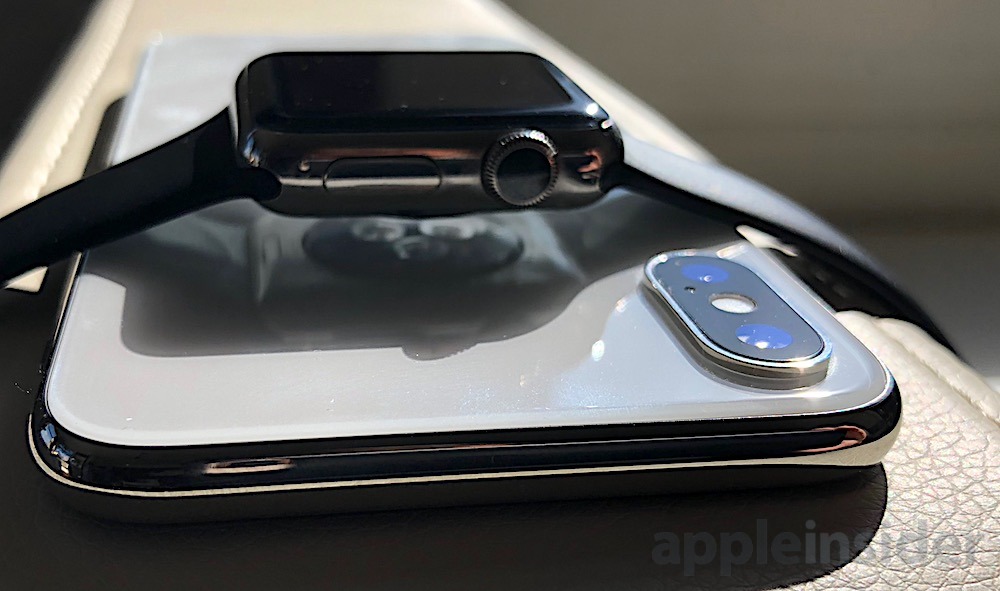
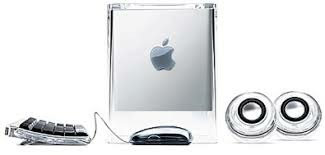
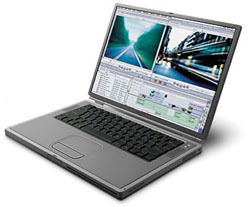
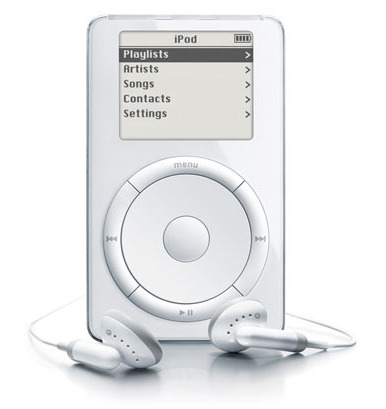
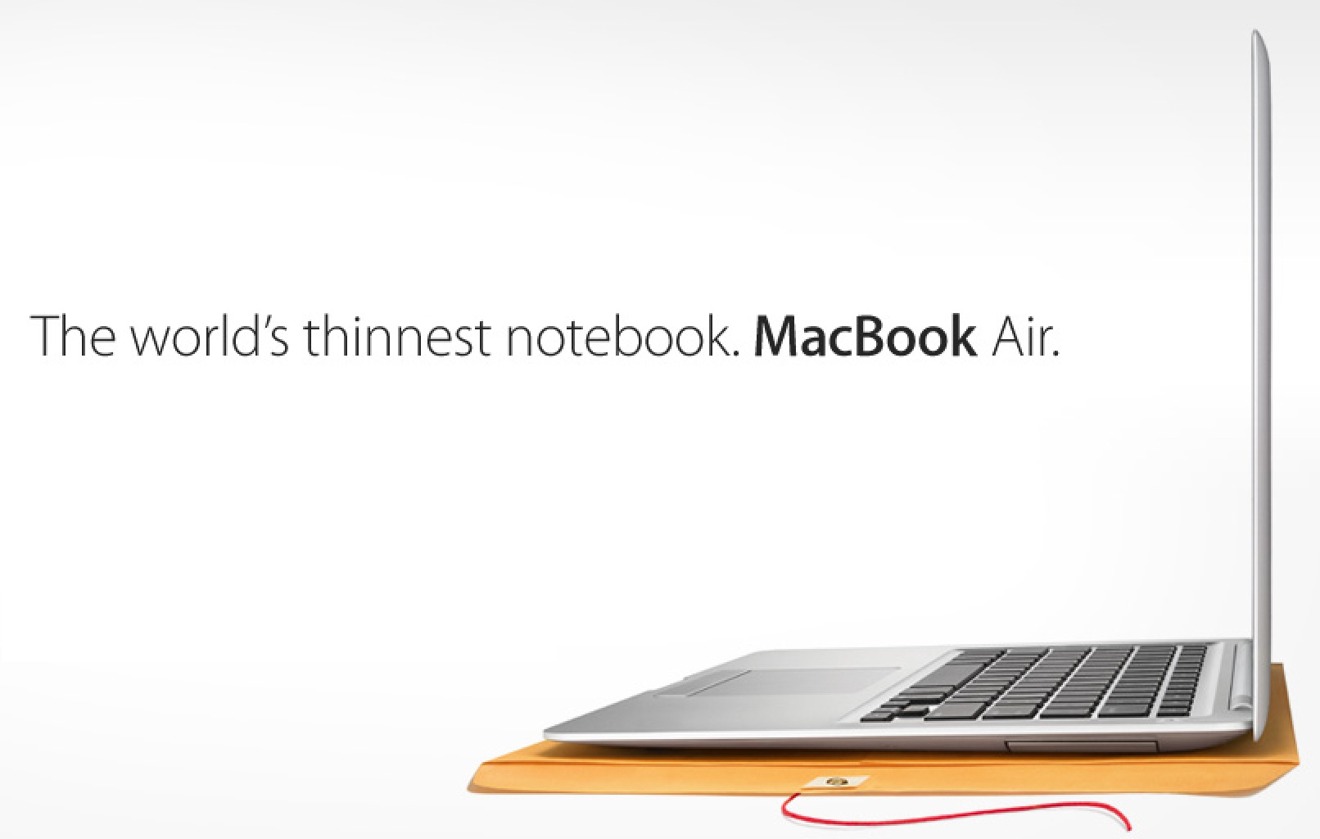
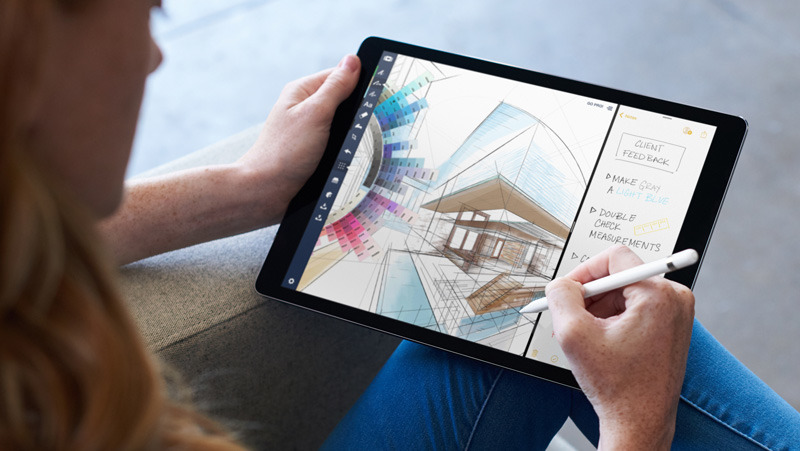

-m.jpg)






 William Gallagher
William Gallagher
 Amber Neely
Amber Neely
 Oliver Haslam
Oliver Haslam
 Thomas Sibilly
Thomas Sibilly
 Marko Zivkovic
Marko Zivkovic

 Wesley Hilliard
Wesley Hilliard
 Malcolm Owen
Malcolm Owen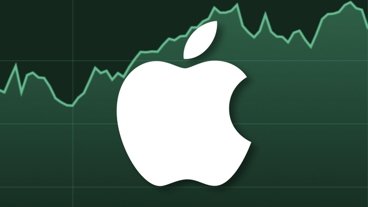


-m.jpg)






57 Comments
I think Apple has a huge opportunity selling the MacBook Air 5G through wireless providers. It would have fantastic battery life running an A Series chip, and have Office 365 support for business. Offer it for $50/month (about the same as the high end iPhone) and it would dominate the PC market.
I’d buy one...
You mention a number of examples of "foundations of what's next." But the problem is, none of them truly measure up, yet.
iPod/Watch/Wearables/Other HW: $11B on revenues of $108B in 2011 was 10%; $17.4B as a % of 2018 revenues is 6.5%. The size of needed wins grows at least at the same same rate as the size of the company.
AppleTV: Apple has lost that race. It never got beyond a self-described hobby.
HomePod: Too tiny to even merit mention. Changes of it contributing significantly to anything anytime soon are remote.
Services: This is a huge bright spot, and what will matter for this is the installed base of iOS devices. But Homekit/CarPlay are, so far, also-rans (there seems to be an issue of Apple not playing well with home appliance and auto manufacturers); competition for ApplePay is growing rapidly (esp. with contactless credit card payments), and moreover, Apple has done a lousy job of marketing it; iTunes is a bloated mess, and needs re-imagining/re-tooling from the ground up; iCloud is not terrible, but other cloud services and offerings such as Dropbox have eaten its lunch; AppleMusic is a solid addition, but I am dubious of its level of success outside the US; Healthkit is a massive opportunity in a multi-trillion dollar health industry, but it is still work in progress.
I would not be surprised if the next year or two continued to be rocky for AAPL. That said, I am quite happy to hold.
The answer is No.
Apple will become a services company, including media services, automotive, and medical.
The iPhone will become secondary because different devices can consume Apple Services...
iPhone, AppleTV, Apple Watch, Android Phones, Mac computer, Windows computer, automobiles, medical equipments etc...
China having a recession might just buy us another decade before the Chinese Military is ready to start a ruckus with the US and Japanese Navies. So, here’s hoping for confusion to the Emperor of China!